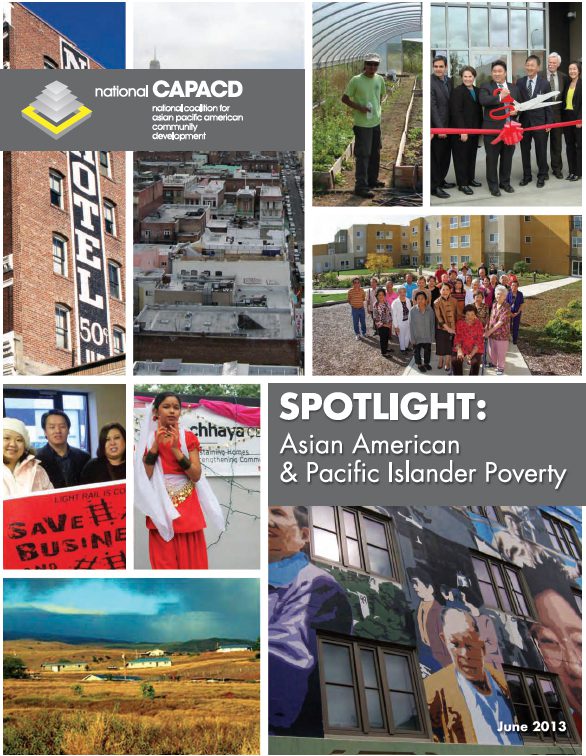
In a FAQ posted about their important, informative recently released study about how America’s racial wealth gap was exacerbated by the Great Recession, “Less Than Equal: Racial Disparities in Wealth Accumulation,” the Urban Institute responded to a question about Asian American wealth with a statement that contained the assumption that “…[O]verall Asian American wealth is likely to be more similar to white families than to African American or Hispanic families…”
This assumption reflects a widely held belief that, because of their economic position, Asian Americans should have weathered the Great Recession in much the same fashion as Non-Hispanic Whites. And why shouldn’t this assumption be true? Haven’t Asian Americans historically shown themselves to be highly successful economically—even, as the numbers above demonstrate, outperforming Whites?
One of the key findings of the Urban Institute’s “Less Than Equal” study is that, while the Great Recession hurt all Americans, it hit Black and Hispanic households much harder than it did Non-Hispanic White households. Transposing the Urban Institute’s findings into inflation-adjusted SIPP numbers, from 2005 to 2011, the median Non-Hispanic White household lost 19 percent of net worth, while the median Black household lost 45 percent of net worth and the median Hispanic household lost 57 percent.
By the same measure and over the same time period, the median Asian American household lost 44 percent of net worth, putting Asian Americans, at least in terms of a percentage loss of net worth, more in line with Black and Hispanic households than with Whites. In terms of absolute net worth (inflation adjusted), median households by race/ethnicity had the following losses:
|
Racial/Ethnic Category |
Median household 2011 Net Worth |
Loss of Net Worth from 2005 (2011 Dollars) |
% Change from 2005 |
|
Total |
$68,828 |
$28,866 |
-30% |
|
Non-Hispanic White |
$110,500 |
$26,135 |
-19% |
|
Black Alone |
$6,314 |
$5,230 |
-45% |
|
Hispanic Origin |
$7,683 |
$10,218 |
-57% |
|
Asian Alone |
$89,339 |
$70,739 |
-44% |
*Source: US Census SIPP, National CAPACD analysis
At a loss of over $70,000 in net worth, the median Asian American household lost far more, in absolute dollar terms, than households of any other racial/ethnic category. In 2005, the median Asian American household had a higher net worth than the median White household. In 2011, it no longer did.
This is not to minimize the fact that the median Asian American household is still moderately better off than the median American household and still has significantly more wealth than its Black and Hispanic counterparts. However, something is clearly going on.
One factor likely is how the foreclosure crisis overlays onto the geography of Asian America. Asian Americans are disproportionately concentrated in the Western Region of the United States and in places where the run up in home values was most dramatic and where the burst of the bubble was most acutely felt.
But I also feel that there is something here about larger American racial dynamics. In looking at how, in the wake of the recession, AAPI poverty increased at the parallel rates to the loss of Asian American wealth (as a shameless plug, see our poverty report), I think the data show that AAPIs economic status in this country is more tenuous than people assume. Chalk it up to another data point debunking the Model Minority Myth.
At any rate, these stats and the need that they indicate are why we at National CAPACD are doing more thinking and program building within an asset building frame.





What a great post! Thank you for filling in this gap in our (my anyway) knowledge.